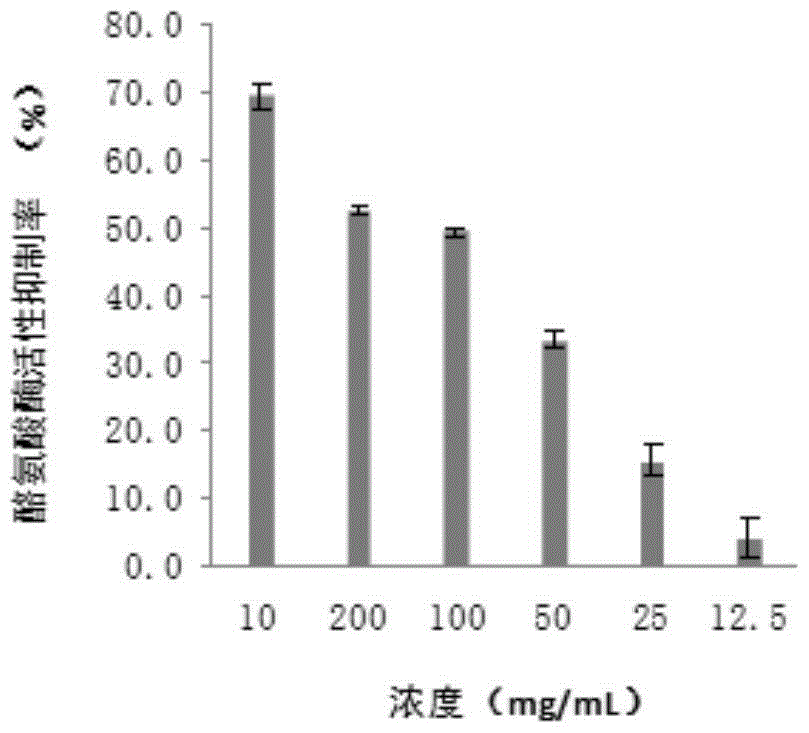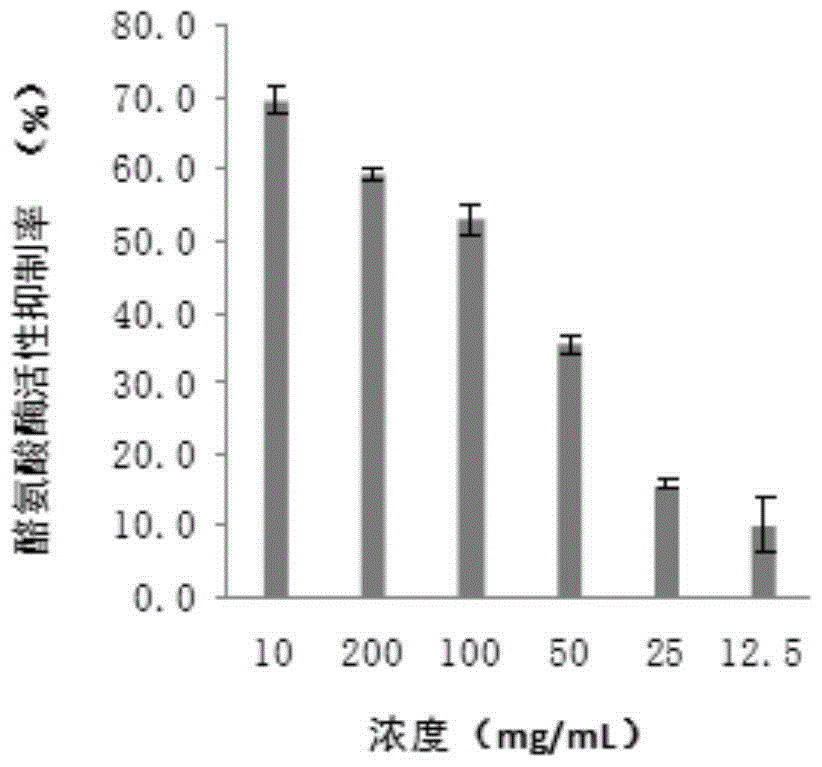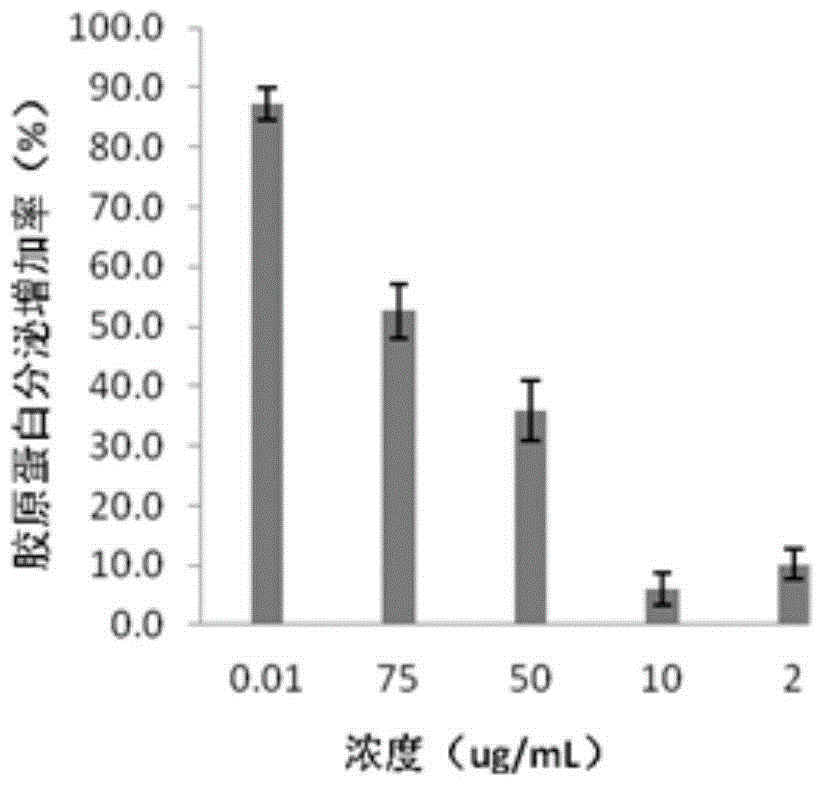Carthamus tinctorius L. extract, cosmetic adopting same as active ingredient and application
A safflower extract and extract technology are applied in the directions of cosmetics, medical preparations containing active ingredients, cosmetic preparations, etc., which can solve the problem of no safflower extract, and achieve good tyrosinase activity inhibition. effect, widening the way of use, improving the effect of use function and added value
- Summary
- Abstract
- Description
- Claims
- Application Information
AI Technical Summary
Problems solved by technology
Method used
Image
Examples
Embodiment 1
[0023] Preparation of safflower extract:
[0024] Weigh 60 g of safflower (Carthamustinctorius L.) sample (safflower bee pollen or safflower inflorescence), grind the sample into powder, soak with 25 times the amount of 85% ethanol (1807-1808mL) for 24 hours, and then collect it with a Buchner funnel Filtrate, repeated 3 times. The filtrate was distilled under reduced pressure with a rotary evaporator, the filtrate was concentrated, and the concentrated filtrate was dried at low temperature to obtain a crude extract. The crude extract was adsorbed and decolorized by macroporous resin (D101), and after elution with 95% ethanol, the eluate was concentrated, evaporated to dryness, and freeze-dried at low temperature to obtain 18.6 g of safflower inflorescence extract, with an extraction rate of 31%; Bee pollen extract 34.6g, extraction rate 57.6%;
[0025] Or, take by weighing 60 g of safflower (Carthamustinctorius L.) sample (safflower bee pollen or safflower inflorescence), g...
Embodiment 2
[0029] Cytotoxicity test of safflower extract: Determination of CC of samples by MTS colorimetry 50 (50%cytotoxicconcentration), that is, the drug concentration when producing toxicity to 50% of the cells, thereby determining the safe sample concentration for the following activity experiments.
[0030] Experimental method: on a 96-well cell culture plate, mix B16 cells with different concentrations of the drug solution to be tested, set 3 replicate wells, and set a blank control without drug at the same time, 37 ° C, 5% CO 2 After culturing for 24 hours, the cytotoxicity was detected by the MTS colorimetric method, and the OD value was measured by a microplate reader at a wavelength of 490 nm. Calculated to get CC 50 value.
[0031] Cell survival rate (%) = experimental well OD 490nm / blank well OD 490nm ×100%
[0032] Experimental results: the cell survival rate of safflower inflorescence extract is 118.877%, the cell survival rate of safflower bee pollen extract is 111...
Embodiment 3
[0034] Tyrosinase inhibition experiment: Mix the drug to be tested with L-Dopa (final concentration 1.25mM), add tyrosinase (final concentration 25U / mL) to start the reaction, set 3 replicate wells, and set no drug at the same time The blank control and the KojicAcid positive control were taken at room temperature for 5 minutes, and the OD value was measured with a microplate reader, and the detection wavelength was 490nm. The inhibition rate of tyrosinase activity was calculated.
[0035] Tyrosinase activity inhibition rate (%)=[1-(sample OD 490nm - Sample background control OD 490nm ) / experimental control well OD 490nm 〕×100%
[0036] Experimental results: both safflower inflorescence extract and safflower bee pollen extract have good inhibitory effect on tyrosinase (see figure 2 , 3), and the concentration of the extract with an inhibition rate of 50% was compared. Among them, safflower pollen extract is IC 50 =89.231μg / mL, safflower inflorescence extract is IC 50 ...
PUM
 Login to View More
Login to View More Abstract
Description
Claims
Application Information
 Login to View More
Login to View More - R&D
- Intellectual Property
- Life Sciences
- Materials
- Tech Scout
- Unparalleled Data Quality
- Higher Quality Content
- 60% Fewer Hallucinations
Browse by: Latest US Patents, China's latest patents, Technical Efficacy Thesaurus, Application Domain, Technology Topic, Popular Technical Reports.
© 2025 PatSnap. All rights reserved.Legal|Privacy policy|Modern Slavery Act Transparency Statement|Sitemap|About US| Contact US: help@patsnap.com



